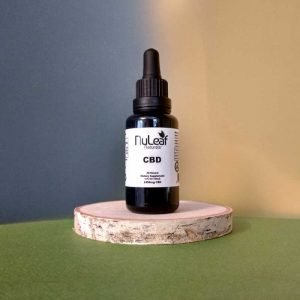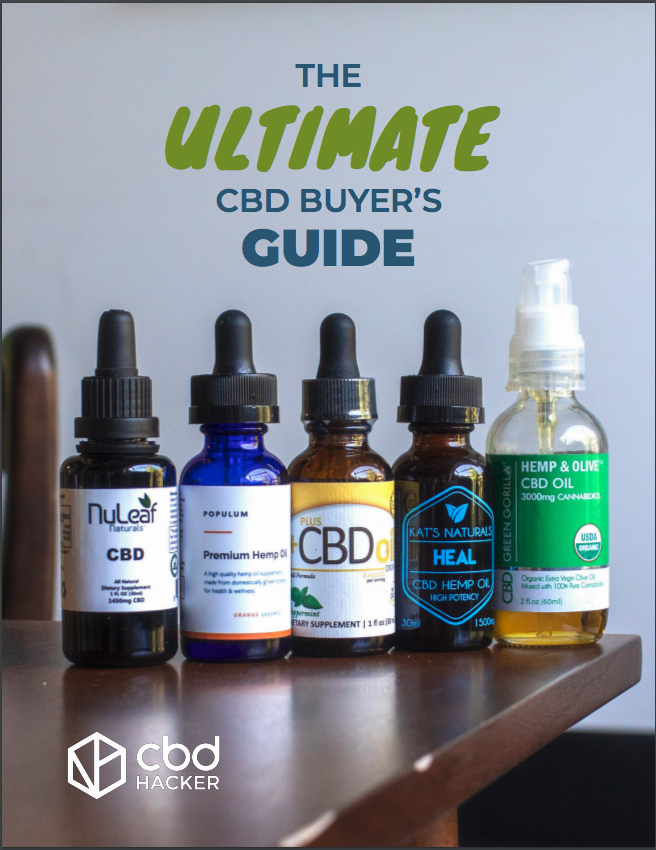Getting enough sleep is massively important for your physical and mental health. When you don’t sleep enough, or sleep well, that deficit can contribute to serious medical conditions like diabetes and heart disease. Treatments for sleep issues can include everything from medication to meditation, and there’s a growing body of anecdotal evidence from people who use CBD oil for sleep.
If you’re experiencing sleep problems, you may be wondering whether CBD can help you. Read on to get the info you need to make an informed decision about how to get a good night’s sleep.
About CBD for Sleep
Claim
CBD treats insomnia and other sleep disorders.
Research Shows
CBD seems to impact sleep for some people, but there’s no consensus about how it works. Clinical trials have produced contradictory results.
Just the Facts
Some studies say that CBD helps people sleep, while others say it helps keep people awake. Dosage could be the factor that determines CBD’s impact on sleep.
About Sleep
Sleep is a basic biological need for humans, just like breathing or eating. While we’re catching our Zs, our bodies repair damaged cells, maintain hormone balance, and build new pathways for learning and remembering new things.
Clearly, getting enough sleep is vital for overall health. And that’s not enough; sleep quality may be just as important as quantity. But one third of adults say that they don’t get the recommended amount of sleep, according to the Centers for Disease Control and Prevention (CDC). And insufficient sleep is associated with chronic conditions such as depression, heart disease, obesity, and diabetes.
With such high stakes involved, what’s keeping people from getting the rest that they need?
In some cases, sleeplessness may be situational. Shift work, for example, can require workers to work during the hours when they’d normally be sleeping. But there are also a variety of sleep disorders that can prevent restful sleep. For example, some of the most common sleep disorders include:
- Insomnia: trouble falling or staying asleep
- Sleep apnea: regular breathing stops briefly during sleep
- Restless legs syndrome: uncomfortable feelings of pain or tingling in the legs
- Narcolepsy: sudden sleepiness during the day
Sleep-related problems called parasomnias can also complicate sleep. These include things like sleepwalking, grinding teeth, and night terrors.
Most people who experience sleep disorders never seek medical help. But there are many treatments for most sleep disorders, which can range from lifestyle changes to surgery. Many people who suffer from insomnia also try prescription or over-the-counter sleeping pills, herbal remedies, or prescription medications.
About CBD Oil
CBD, or cannabidiol, is one of a group of substances called phytocannabinoids. These compounds occur naturally in the cannabis plant, and have the ability to affect the human body in a number of ways.
These effects are due to the fact that cannabinoids like CBD behave similarly to chemicals that the body produces. That similarity allows CBD to interact with the endocannabinoid system (ECS): a network of chemicals and receptors found throughout the body.
ECS receptors are found in tissues throughout the body, from the brain and other organs to the cells of the immune system. Scientists are just beginning to explore the potential medical and wellness applications of phytocannabinoids like CBD.
There are dozens of substances in this group, which the most famous of which is THC, or tetrahydrocannabinol. THC is the substance that is mostly responsible for the psychoactive effects of cannabis. But while the “high” it can cause has made THC notorious, the medical field has increasingly recognized its potential for therapeutic use.
In contrast, CBD is not intoxicating. You’d get more of a buzz from a cup of coffee. And, while it has been largely bred out of strains of cannabis that were developed specifically for psychoactive potency, CBD may occur abundantly in legal hemp plants.
Today, the CBD oil market is booming, and you can find it in many different types of products. Gummies, capsules, tinctures, and vape products are all popular ways to take CBD for sleep issues.
It is also common for CBD products that are marketed for sleep to include other sleep-promoting ingredients. These may include melatonin, or herbal supplements like lavender or hops. Be sure to read product labels carefully to make sure that you understand what you’re buying.
How CBD Could Affect Sleep
Although it’s not intoxicating, CBD seems to affect the brain by increasing levels of the neurotransmitters serotonin and glutamate.
These neurotransmitters affect learning, memory, and sleep, so this may account for CBD’s influence on sleep. But CBD could also affect sleep through indirect mechanisms. For example, it might help people sleep better by reducing chronic pain or helping to manage stress that’s keeping them awake.
CBD may prove to be a flexible tool in treating sleep disorders, because its effects on wakefulness may depend on dosage. While CBD tends to have a sedative effect in high doses, it may promote alertness at lower doses. This means that lower doses could treat daytime sleepiness. Higher doses, on the other hand, may be more useful in helping people to fall asleep, or stay asleep.
Research Highlights
We’ve gathered some of the most significant studies on CBD and sleep below. Click on each headline to see more information.
2018: CBD doesn’t affect healthy sleep
In this double-blind, randomized study, twenty-seven healthy volunteers took either CBD or a placebo on the first night. Then each patient took the other substance for the second session. So, if one volunteer took the placebo for the first session, they would take CBD for the second, and vice versa.
The 300 mg dose of CBD was chosen because that is a dose that could be used to treat anxiety. The authors noted that drugs commonly used, like benzodiazepines and selective serotonin reuptake inhibitors, tend to affect sleep.
CBD, on the other hand, did not have any impact on the sleep cycle of healthy volunteers. That means that if CBD were used to treat anxiety, patients could avoid the sleep-related side effects of other drugs.[/accordion]
2014: CBD helps with sleep disorder
This case report followed four patients with Parkinson’s disease who had rapid eye movement sleep behavior disorder (RBD).
For most people, the muscles are very relaxed during rapid eye movement (REM) sleep. Because of that, we don’t physically act out our dreams while we are experiencing them.
For people with RBD, though, that muscle relaxation doesn’t work as well, and that can lead to movement during REM sleep or dreams. These movements can be small twitches or violent movements and can lead to injury for the person or their sleeping partner.
The researchers found that all four patients who used CBD had “prompt and substantial reduction” in their symptoms. Although the sample size was very small, the authors of the paper concluded that CBD can control RBD symptoms.
2007: Together, CBD and THC help with sleep
This review evaluated studies on the impact of THC and CBD on sleep, both together and separately.
According to sleep-laboratory results, CBD makes people slightly more alert, while THC had more of a sedative effect.
When the two were used together in equal proportions, the authors report that patients’ sleep improved substantially. In studies that followed subjects for up to four years, 40 to 50 percent of patients attained sleep quality that was “good” or “very good.”
2004: CBD may promote wakefulness
This double-blind, placebo-controlled study reported on the effects of CBD and THC on healthy volunteers (four males and four females, between 21 to 34 years old).
The volunteers received one of four treatments:
- Placebo
- 15 mg THC
- 5 mg THC combined with 5 mg CBD
- 15 mg THC combined with 15 mg CBD
The researchers found that CBD had a mild stimulant effect, affecting the quality of sleep at lower doses and promoting wakefulness at the higher dose.
1981: CBD helps with insomnia
In this review of research conducted from 1972-1981, the authors reported that in insomniac volunteers, those who used CBD slept significantly more than the placebo group.
Concerns About Using CBD for Sleep
Because it’s derived from cannabis, many people treat CBD with more caution than other plant-based supplements. In fact, even the World Health Organization (WHO) has declared that CBD is safe to use. However, the WHO noted that there have been adverse effects associated with CBD, and that these were probably the result of drug interactions.
These interactions are possible because the group of liver enzymes (cytochrome P450, or CYP) that metabolizes CBD is also responsible for breaking down a lot of common medications. This means that in high enough doses, CBD and other medications could basically compete for your CYP enzymes. As a result, the effects of your medication may feel greater or less than normal.
If you decide that you want to try CBD for sleep, you should talk to your doctor first. This is even more important if you’re taking other medications, as your physician might want to increase or decrease your dosage to compensate for CYP interactions.
CBD Oil for Sleep: Our Team's Top Picks
Looking for the best CBD oil for sleep? The CBD Hacker team has selected a few high-quality products that have specific ingredients chosen to promote sleep and relaxation.
Want to learn more? Check out our full ranking of this year’s best CBD oils, or visit our ranking of the best CBD products for rest and relaxation.
Mission Farms, Rest CBD Oil
 Mission Farms created this CBD oil blend with sleep in mind. To help you relax and wind down at the end of the day, it offers bergamot, orange, lavender, and chamomile essential oils in every dropper.
Mission Farms created this CBD oil blend with sleep in mind. To help you relax and wind down at the end of the day, it offers bergamot, orange, lavender, and chamomile essential oils in every dropper.
Save 20% with our exclusive code: cbdhacker.
Shop NowcbdMD Sleep Aid CBD PM
This CBD oil tincture has been formulated to promote sleep by adding melatonin, chamomile, valerian root extract, passionflower, cascade hops, and lemon balm.
Save 15% with our exclusive code: 15CBDH.
Shop NowNuLeaf Naturals, Full Spectrum CBD Oil
NuLeaf Naturals offers Colorado-grown, full spectrum CBD oil that offer among the most trace cannabinoids per drop of any product we’ve tested.
Save 20% with code: cbdhacker.
Shop Now






